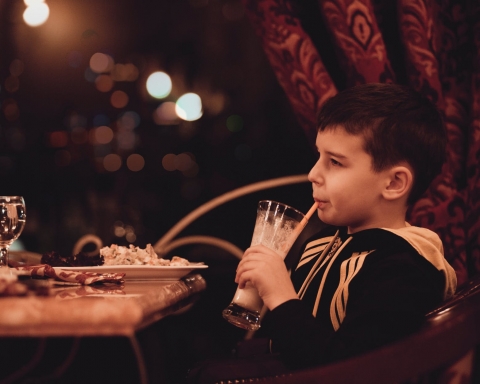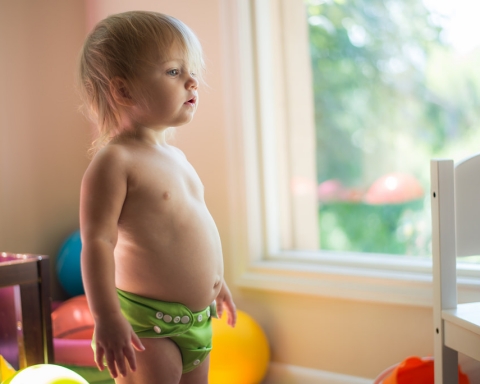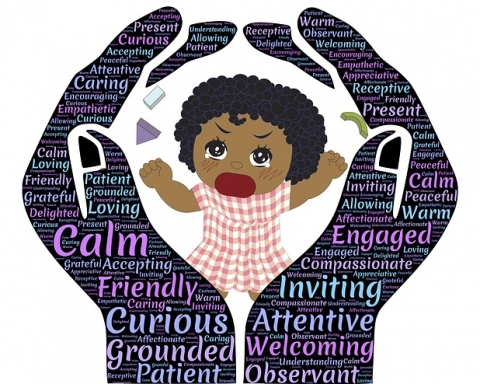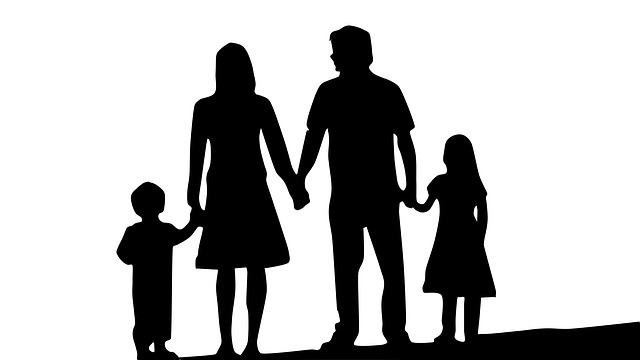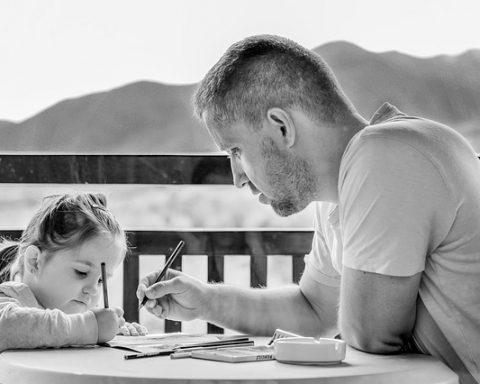Despite the wealth of information available, effective parenting in a defective world is a tough job because toddlers have an overwhelming amount of needs. Children’s needs are not just physical. They have numerous emotional and psychological needs as well.
Parents need to be physically and emotionally available for their toddlers. Patience and emotional attentiveness are important traits of parenting with grace. Positive parenting solutions help parents respond compassionately and appropriately to their children’s various emotional needs.
What Emotions Do Toddlers Display?
Once babies enter the toddler stage, they are able to feel and express a wide range of emotions. In positive and familiar situations, they exhibit emotions like calmness, peace, joy, curiosity, and excitement. However, in negative or unfamiliar situations, they tend to display negative emotions and behaviors, such as boredom, hyperactivity, overstimulation, temper tantrums, rage, naughtiness, separation anxiety, and clinginess.
Effective parenting in a defective world means showing empathy and patience when toddlers are being challenging and difficult. Since a toddler’s higher brain is still developing, the primeval needs and emotions of the lower brain take charge. Young children need reassurance and positive parenting in order to calm themselves in stressful situations.
A Toddler’s Emotional Brain Development: The Importance and Risks
Effective parenting in a defective world means intuitively addressing a child’s emotional problems and dealing with them as soon as possible.
Parenting with grace involves responding to a child’s emotional needs appropriately. Once his or her emotional needs are met, the child’s brain releases oxytocin (also known as the love hormone) and opioids, which make the child feel loved, taken care of, and secure. The interplay of these hormones also helps the child bond with others socially.
However, if the parents criticize, threaten, or shout at their child a lot or abandon him or her physically or emotionally for long periods of time, the production of opioids and oxytocin in the brain is disrupted. If a toddler’s opioid and oxytocin levels are insufficient, he or she becomes susceptible to meltdowns.
Furthermore, if the chemical imbalance of opioids and oxytocin continues for a long time, it alters the brain chemistry permanently. Essential neural pathways do not form, and the child’s lower brain doesn’t learn to communicate with the higher brain.
As a result, the child is unable to show higher feelings, such as friendliness, concern, sympathy, love, and self-reflection. The child instead develops a hyper-reactive stress response, which allows lower-brain impulses like screaming, hitting, biting, and shoving to dominate his or her behavior.
As a teenager or adult, such a child is unable to regulate feelings of irritation, sadness, anger, and rage. The child becomes passive aggressive, violent, depressed, and even suicidal. This kind of damage cannot be reversed effectively in every case, though counseling and nurturing relationships do have some impact. So, positive parenting is very critical in the early stages.
Why Is Positive Parenting Important for Your Child’s Emotional Development?
Positive parenting contributes to frontal lobe development in a child’s brain. Once vital neural pathways are developed, the child is able to effectively handle stress, calm down, and maintain composure.
When parents nurture their child in a compassionate and responsible way, the child eventually becomes an emotionally strong and responsive person who is positive, kind, peaceful, and compassionate. The child is also able to get along with peers and to form meaningful relationships. They learn how to respond well to criticism and conflict, and they become ambitious enough to pursue their goals and dreams. They embrace success as well as failure wholeheartedly.
As one research study observes, “adults should be aware of the importance they have as rule-givers and role models. Adults can encourage prosocial, altruistic behaviors in children by their own actions and by the way in which they handle conflicts.”
Effective parenting in a defective world is not easy, but it can be done through parenting with grace.
How to Help Your Toddler Embrace Big Emotions
Big emotions are emotions too powerful for a toddler’s young and still-developing brain. Big emotions render toddlers incapable of understanding, processing, and responding to difficult situations in a socially responsible manner.
In parenting with grace, it is the parents’ responsibility to embrace these emotions, to respond to them in an appropriate manner, and to teach their child to do the same.
Merely getting angry with the child, punishing the child, or hurting him or her doesn’t solve negative behavior; rather, such reactions may, in fact, aggravate it. Parents need to exercise positive parenting. When they respond appropriately to their child’s emotional needs, it builds a foundation of empathy and trust that serves as an ideal behavioral model for children.
How to Deal with Aggressive Toddlers
Toddlers often use aggressive behavior to assert superiority over their peers and even adults. Effective parenting in a defective world requires parents to respond appropriately. Some examples of aggressive behaviors—and how to handle them—include:
Temper Tantrums
In the absence of adequate language skills, toddlers tend to express their displeasure with temper tantrums. One research study identified anger and distress as “major, independent emotional and behavioral tantrum constituents.” Toddlers also feel overwhelmed in crowded places due to sensory overload and may end up having a meltdown.
Allowing temper tantrums to become normal and acceptable behavior has several future implications. According to research, “Men with histories of childhood tantrums experienced downward occupational mobility, erratic work lives, and were likely to divorce. Women with such histories married men with lower occupational status, were likely to divorce, and became ill-tempered mothers.”
One book on parenting called Holding Time: How to Eliminate Conflict, Temper Tantrums, and Sibling Rivalry and Raise Happy, Loving, Successful Children recommends “holding time” as a remedy to aggressive behavior. Holding time “is a breakthrough parenting strategy—a revolutionary approach to mother-child bonding that can make all children happier, more cooperative and more self-confident.” In other words, when children throw tantrums, give them a hug, wipe away their tears, and reassure them.
Defiance
Sometimes toddlers act defiantly when they don’t get their way, such as when they are denied a toy or taken back early from a park or play area. It is the toddler’s way to get attention or to get what he or she wants.
A pioneering work on child psychology titled Normality and Pathology in Childhood says, “belligerence is caused by internal drives (aggressive, possessive) which require urgent and complete gratification, but which clash with parental protective restrictions and result in the numerous acts of disobedience, unruliness, naughtiness, temper tantrums, etc. of the normal young.”
The best ways to deal with defiant toddlers are to ignore them or to distract them with another favorite thing or activity. Effective parenting in a defective world has its challenges. Don’t give in to a child’s every whim or else the child will continue to act defiantly in order to get whatever he or she wants.
Hyperactivity
Hyperactivity is a higher than normal level of activity. Hyperactive toddlers tend to fidget, yell, and run around a lot. Most toddlers respond to strong physical and emotional triggers in a hyperactive manner. In particular, don’t expose them to situations that can overwhelm their senses, such as noisy and crowded places, bright lights, and electronics.
Parents need to watch closely for the causes of their children’s hyperactivity and exercise positive parenting.
Whining
Young children lack the social and linguistic skills to communicate their needs, so they may resort to incessant whining. Whining is very annoying, but parents should handle it with a more appropriate response through parenting with grace.
First, parents should address their child’s needs as soon as possible, so the child doesn’t have to resort to whining and begging. Second, don’t react with anger. Instead, try to reason with the child and explain why a particular demand cannot be fulfilled. Encourage whiny toddlers to speak in a normal voice until they get the idea.
If whining delivers quick and sure results, the child will keep on doing it, so don’t give in to a child’s unreasonable demands.
Crankiness
Cranky toddlers are characterized by crying, distress, and grumpiness. One book titled The No-Cry Sleep Solution suggests that “the chronically cranky, whiney, sleepless child is sleep-deprived.” Indeed, toddlers usually act cranky when they are hungry, sleepy, bored, or ill.
One positive parenting solution is to stick to a daily schedule that includes regular nap times and meal times to keep crankiness at bay. In addition, carry a stroller, a few familiar toys, and healthy snacks while traveling and during outings to provide toddlers with space, respite, and sustenance.
In summary, try to respond to aggressive toddlers in a calm and collected manner in order to show them an example of acceptable behavior. Remove them from the situation so that they don’t harm themselves or others. Tell them repeatedly that their actions hurt. Through positive parenting, parents can build a foundation of trust and empathy by understanding and responding appropriately to their child’s needs.
Some Positive Ways to Respond to Your Child’s Emotional Needs
Here are some positive ways to respond to a child’s emotional needs:
- Listen to your child. A toddler’s reactions are mostly based on his or her need to be heard. Therefore, no matter how busy you are or how disruptive your toddler is being, make sure to listen to your child in order to find out why he or she is trying to get attention.
- Acknowledge your child’s feelings. When your child is very upset or crying over something, instead of shouting, acknowledge the child’s feelings through parenting with grace. Say things like, “I know you are angry. I know you are upset. Yes, falling down hurts. But it’s going to be alright.”
- Help your child recognize feelings. Sometimes toddlers know that they are experiencing something big but cannot name it. So, try to help children identify different feelings. Say things like, “When you kick me, it hurts.”; “When you hug me, it feels good.”; “This is very good.”; “Screaming is bad.”; or “A hug feels nice.”
- Hug your child frequently. Physical touch calms upset toddlers and makes them feel secure. So, if a toddler is crying or screaming, try to give him or her a hug and hold on to the toddler until he or she is able to calm down. Talking to toddlers in a calm, soft, and hushed tone; gentle rocking; patting; and kissing are some parenting with grace strategies that also help.
- Give your child space. There are times when nothing works. Nothing the parents do or say is helping their upset toddler. If the child isn’t physically hurt or ill and no other needs are apparent, back off and let the child sort through his or her emotions and calm down on his or her own. This strategy also helps toddlers learn how to self-soothe.
- Offer encouragement. If a toddler responds positively to instructions or has been well-behaved, make sure to praise the achievement. Say phrases like “Good job,” or “Well done.” Use gestures like clapping and high-fives. Encouragement boosts a child’s self-worth and confidence.
- Be a role model. Parents are the primary role models for their children. So, if the parents demonstrate negative behaviors, such as yelling and cursing, their child is likely to imitate them. So the better the parents are at managing emotions like anger, irritation, excitement, and stress, the better their toddler will be at emulating positive feelings and emotions.
- Aim for experiences rather than things. In today’s materialistic age, objects create momentary satisfaction. Effective parenting in a defective world is difficult because of the prevailing materialism and the consequent quick dissatisfaction with things. Therefore, try to buy fewer toys for your child and instead focus on giving him or her more experiences. Positive experiences and interactions create positive emotions and memories. So, spend time with your child. For example, go to the park, go for a walk, pet some animals, visit a zoo, or play in the rain together.
Effective parenting in a defective world requires responding to a child’s physical and emotional needs in an adequate and timely manner.
Raising emotionally healthy, sane, and well-balanced toddlers is very important in a society seemingly dominated by hate, hurt, crime, and violence. Traumas endured during the early years have a significant impact later in life.
Positive parenting can significantly help improve society and its individuals.
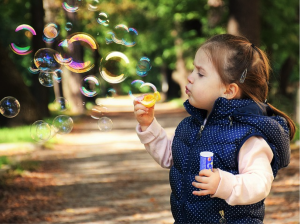
[ppmaccordion][ppmtoggle title=”References”]
- Welch, Martha G. Holding Time: How to Eliminate Conflict, Temper Tantrums, and Sibling Rivalry and Raise Happy, Loving, Successful Children. New York: Simon and Schuster, 1989. Retrieved from https://scholar.google.com/scholar?hl=en&as_sdt=0%2C5&q=toddler+tantrums+&btnG=
- Potegal, Michael, and Richard J. Davidson. “Temper Tantrums in Young Children: 1. Behavioral Composition.” Journal of Developmental & Behavioral Pediatrics 24, no. 3 (2003): 140–147. Retrieved from https://journals.lww.com/jrnldbp/Abstract/2003/06000/Temper_Tantrums_in_Young_Children__1__Behavioral.2.aspx
- Caspi, Avshalom, Glen H. Elder, and Daryl J. Bem. “Moving against the World: Life-Course Patterns of Explosive Children.” Developmental Psychology 23, no. 2 (1987): 308–313. Retrieved from http://psycnet.apa.org/buy/1987-18407-001
- Freud, Anna. Normality and Pathology in Childhood. London: Hogarth Press, 1966. Retrieved from http://onlinelibrary.wiley.com/doi/10.1111/j.2044-8341.1966.tb01326.x/full
- Honig, Alice Sterling. “Quality Infant/Toddler Caregiving: Are There Magic Recipes?.” (1987). Retrieved from https://eric.ed.gov/?id=ED288625
- Doak, Heather. “Book Review: The No-Cry Sleep Solution for Toddlers and Preschoolers: Gentle Ways to Stop Bedtime Battles and Improve Your Child’s Sleep.” Journal of Human Lactation 22, no. 3 (2006): 355–356. Retrieved from http://journals.sagepub.com/doi/abs/10.1177/089033440602200325?journalCode=jhla
[/ppmtoggle][/ppmaccordion]

